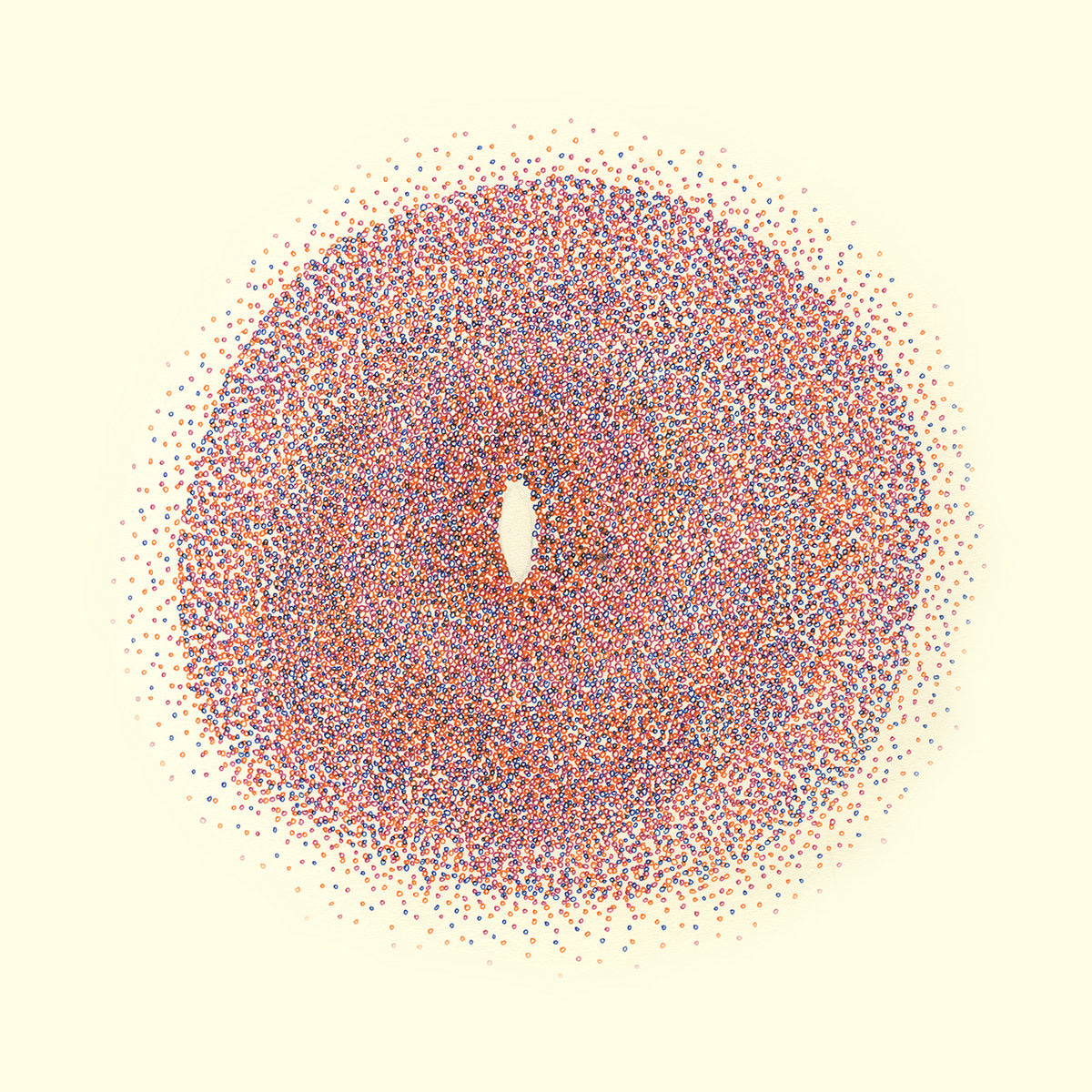RECENT LISTENING #16
Marc Riordan, Bumbo's Tinto Brass Band, Whisker, Air, Cluster, Partial Shit Band
MARC RIORDAN Life Systems LP (SOPHOMORE LOUNGE) Inquisitive and somewhat inscrutable morning listen. Blocks of new-age sound float back and forth while other intangible instruments gently patter and scribble. Overall, the instrumentation is sparse and hard to parse. Riordan plays on all tracks, and is likely already overdubbing himself, and is joined on most tracks by at least one other musician, but even after using the credits to plot out who’s on what track, nothing so typical as individual roles is apparent. Track one “Eridanus” is apparently Riordan plus clarinet (by Jeff Kimmel) and piano (by Ben Boye); track two “TFO” is apparently Riordan plus saxophone (by Peter Hanson); track three “Blood’s Journey” is Riordan plus piano (by Ben Boye), and so on, in various combinations, and only one track (the last one “Omega Building13”) is Riordan completely solo. But no matter the instrumentation, the tracks all sounds similar. In a good (but inscrutable) way. Making matters more inscrutable is that Riordan’s instrumentation is not named in the credits, just that of the support musicians. It sounds to me like he plays keyboards and synth/electronics, maybe with computer and drum programming as well. The internet tells me he’s a drummer and pianist who has played with Sun Araw, Owls, Cairo Gang, Wishgift, more, though that doesn’t really help me because I’m not too familiar with those bands, and when Hanson’s lyrical saxophone emerges out of the middle of side two, over the gently busy and harmonious synth arpeggiations of “Back of the Bay,” it’s like a ray of sunshine, or a brief window opening onto a more traditional presentation. As mentioned above, Hanson also plays saxophone on track two “TFO,” and I don’t even remember hearing sax on it at all. In fact, I’m listening to it again right now, and I still don’t hear sax on it. Now the song has just ended. Guess what? Didn’t hear sax. Like I said… inscrutable.
BUMBO’S TINTO BRASS BAND 7” EP (BUMBO RECORDS) God bless the contemporary Detroit garage rock scene, and here they go again, with some semi-pseudonymous characters from in and around the X! Records milieu just goofing off. (“Includes members of Piranhas, Druid Perfume, Frustrations, Moonhairy, Johny ILL Band, Beekeepers.”) This is a 45 RPM 7-song EP, which means the songs kind of blast by quickly, but they are all songs, and even rather ‘progressive’ in the songwriting, meaning that you get this weird mix of the expected (post-Chrome sci-fi rawness), the unexpected (almost showtune-level theatrical vocals, both male and female, just listen to the chorus of track two “Mother Told Me”), and the ambitious (lotsa heavy punk riffs and wild saxophone/electronics textures). The singing and lyrics really are straight-up goofy though, as goofy as the band name (named as it is after the bandleader’s goofy pseudonym Bumbo Krawczyk, and executing as it does a goofy “brass band” pun on the name of the well-known Italian erotic filmmaker).
WHISKER Moon Mood (HUSKY PANTS RECORDS) Also on Ryley Walker’s private label Husky Pants (like Walker’s own Covers EP as reviewed in the previous newsletter) comes this new record by a new project that is 2/3rds of legendary Chicago spirit-of-2009 scorchers Tiger Hatchery, with THC drummer Ben Baker Billington on synths & electronics and THC bassist Andrew Scott Young on bass, calling themselves Whisker. Moon Mood is a nice name for an LP pulled from in-depth duo improvisations, and we get two side-longers, titled “I” and “II,” 17:31 and 19:15 in length respectively, but there’s no sea of tranquility to be found, as the approach is pretty wild, active, and aggressive. Right at the start, Young is doing some actual jazz-style walking on the double bass, but any tradition established is fully disrupted by Billington’s freaking of the electronics, and as the album progresses I don’t recall anything that could even be called calm, let alone reflective, about these particular (moon) moods. Young does plenty of the disrupting himself, getting into frenzied arco techniques as well as fast pizzicato, always at a high level of intensity. I don’t think either of these guys are originally from Chicago, but this is definitely Chicago-school creative music, right in the city tradition from peak 60s/70s AACM on through that 90s Venn-diagram overlap between post-rock and no-wave that is still now blasting well into the 21st Century.
AIR Open Air Suit LP (ARISTA NOVUS) Speaking of sick 1970s Chicago jazz, this legendary band and 1978 album tick a lot of boxes as far as ways to be great. Great Chicago music (even if it was recorded in NYC). Great black music. Great creative music. Great jazz music. Also, just one of the absolute great musical trios, as far as skill level, interplay, equal weight, etcetera. You can use any of those metrics to compare Air to Rush, or the Minutemen, or ZZ Top, with interesting results, but in any equation a great musical trio should form a triangle, as Joe S. Harrington described when writing about the Albert Ayler Trio (with Gary Peacock & Sunny Murray) way back in Blastitude #13: “By ‘trio’ I mean a thinking-person’s triangle where each point resonates with its own personality.” The three personalities of Air are three Chicagoans: Henry Threadgill on saxophone, Fred Hopkins on bass, and Steve McCall on drums. The de facto bandleader, Threadgill is of course not only a greatly skilled player of a variety of reeds and woodwinds, but also a mind-blowing composer of complex themes, harmonies, and melodic rhythms. He indeed wrote all four pieces on here, organized around a poker-playing concept that’s explained to some extent in the liner notes. As for Fred Hopkins on bass and Steve McCall on drums, I just don’t know the words to do justice to how amazing their playing together is throughout this LP and entire career. You just have to hear the album. Jump to the first song on side two, for example, which is track three, bearing the very Threadgillian title “Card Four: Straight White Royal Flush… 78.” Said composer is on baritone sax for this one (he plays a different instrument on each of the album’s four tracks, three different saxes and flute), leading with another one of his aggressively multifaceted melodies, even darker than usual when played on that gruff and grinding bari sax, and the melody just keeps grinding and extrapolating until it becomes free-form. Or has it? Is the melody still composed, cycling back into itself by some arcane preordained Threadgillian metric? Which somehow still allows for church/R&B improvisation at the very end of each cycling phrase, which Hopkins and McCall are doing too, even if completely subliminally, all three absolutely unstoppable in their creation and drive and orchestration? We get bombastic declamations from McCall, free-form military style, and meanwhile Hopkins is dropping low-end bass note bombs with McCall’s kick drum and you don’t even process the chording they’re creating, because you’re so busy keeping up with the music they’re simultaneously playing up top (literally, Hopkins on his higher strings and frets, and McCall on his snare drum and cymbals). It gives your brain so much to take in, like you’re suddenly using high-bandwidth internet for some sort of non-verbal direct-to-heart-and-soul wordvirus-antibody download. That’s how good Air is. POSTSCRIPT. What got me listening to Air this month, really for the first in-depth time ever, was what another Chicago bassist Matt Lux (Isotope 217, Azita, Moon Bros. & much more) said about Fred Hopkins on a 2018 episode of the great and now defunct Now Is podcast: “He’s one of the most playful musicians ever. Just the spirit of happy experimentation. Being able to play things that are kind of obtuse but put them in in a way where it sounds really natural, and it always sounds like fun. And when he plays a groove, it’s a GROOVE, like, even though it’s jazz, you can dance when Fred Hopkins is playing.”
CLUSTER Cluster 71 CD (BUREAU B) Cluster’s most famous and acclaimed records are probably Zuckerzeit and Sowiesso, and understandably so, but I have a real soft spot for the first album they made as a duo, Cluster 71. Before that they were a trio called Kluster, with founding members and mainstays Hans-Joachim Roedelius and Dieter Moebius joined by a “conceptual artist” and general instigator of noise and chaos, Conrad Schnitzler. Kluster quickly recorded and released three albums, followed almost immediately by the departure of the mercurial Schnitzler in 1971. Roedelius and Moebius continued as a duo, changing their name to the softer and Anglicanzied Cluster. Their sound became softer as well, and brilliantly so, but for Cluster 71 they were still making music that implied a lot of chaos, the good old dark, noisy, and primeval kind. It’s important to note that without Schnitzler’s explicit chaos, the group was able to move beyond explicit chaos and into implicit chaos, out into the great vast void that surrounds and contains it. That’s right, chaos is a mere subset of this album. It predicts Throbbing Gristle as much as anything else did at the time.
PARTIAL SHIT BAND s/t (NO LABEL) Of course I’m going to be partial to the shit of any band called Partial Shit Band. Although, I think this band might actually be called Turner/Ferguson, and Partial Shit Band is just the album name; I can’t tell for sure because it’s not on Discogs. Either way, they’re an electric guitar duo of Mikey Turner (aka Ma Turner, also of Warmer Milks, Cross, Huevos II, more) and John Ferguson, whom a careful google search reveals was a member of another Turner band, Mazozma’s Fatufairfe, who released one record only, an excellent 45RPM 12” EP on Sophomore Lounge back in 2016. This places Partial Shit Band (sorry, that’s what I’m callin’ em) as a Lexington, Kentucky band that made music not long before Turner’s move to Sunburnedland, Western Massachusets. Oh duh, I hadn’t read the Bandcamp liner notes yet, which say this: “ONE TAKE, IMPROVISED ON ELECTRIC GUITARS JULY 28TH AT SIDECAR, LEXINGTON 2014 BY MA TURNER AND JOHN FERGUSON. NO EDITS.” In fact, even though I’m discovering it for the first time tonight, this album was released on Bandcamp in July 31, 2014, a mere three days after it was recorded. Lol, this album is almost 7 years old. And the name Partial Shit Band probably isn’t a complete joke, because it is an apparently completely improvised live performance, released apparently in full, and you know how that can go. One of the guys, or the other, do fall into fairly slow-moving and somewhat standard rock riffs from time to time, probably as a kind of safe space, but the guitar textures are revealingly heavy throughout, and if nothing else this is a record of strong proto-Fatufairfe material, forming and gestating in a pre-rhythm-section state.








